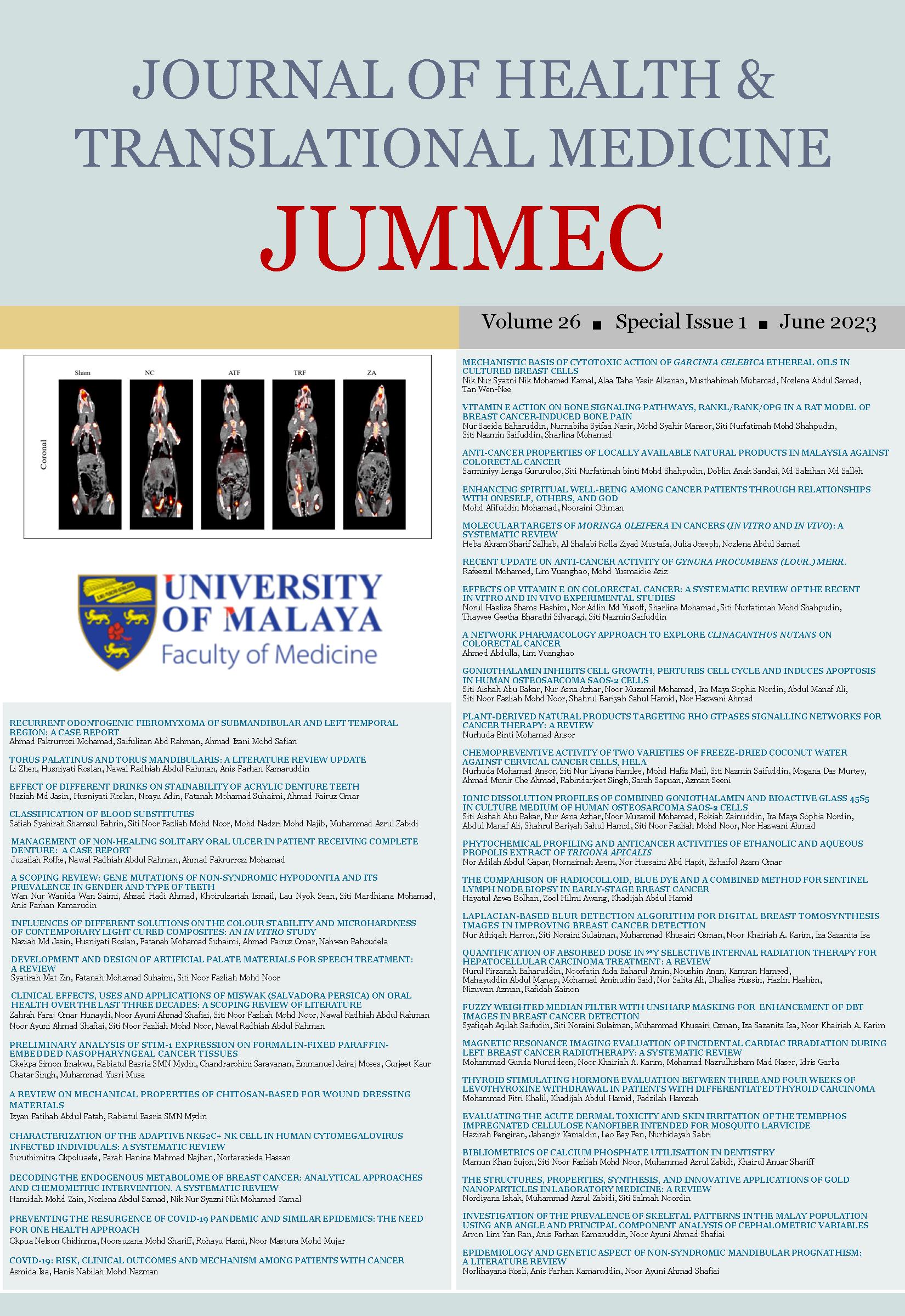GONIOTHALAMIN INHIBITS CELL GROWTH, PERTURBS CELL CYCLE AND INDUCES APOPTOSIS IN HUMAN OSTEOSARCOMA SAOS-2 CELLS
Received 2023-01-03; Accepted 2023-02-15; Published 2023-06-06
DOI:
https://doi.org/10.22452/jummec.sp2023no1.9Abstract
Goniothalamin (GTN), a naturally occurring styryl-lactone extracted from Goniothalamus sp. has been reported to possess a potent antitumor effect against several types of cancer cells. Nevertheless, the anticancer effect of GTN has not been explored in bone cancer. The present study was designed to evaluate GTN potential anticancer effects in human osteosarcoma Saos-2 cells and to determine the possible mechanisms with respect to apoptosis induction, reactive oxygen species (ROS) release, activation of executioner caspase 3/7 and effects on the cell cycle. The current data demonstrated that cell proliferation was significantly inhibited by GTN in a concentration- and time-dependent manner. This was achieved primarily via apoptosis where the flow cytometric analysis showed a significant increment of apoptotic cells, from 7.23±0.75 to 39.86±0.54 and 1.38±0.15% to 3.27±0.27% for early and late apoptotic cells, respectively. Moreover, GTN induced a significant increase in intracellular ROS levels and activated caspase 3/7. Cell cycle analysis of GTN-treated cells showed the population of G2/M phase was significantly arrested with 53.12±0.84% compared to the untreated cells with 28.64±0.73%. Taken together, these results suggest that the suppression of GTN-treated Saos-2 cells was associated with apoptosis and G2/M cell cycle arrest. Due to its antiproliferative and proapoptotic effects, GTN has a potential to be used as a chemotherapeutic agent against bone cancer.
Downloads
Downloads
Published
Issue
Section
License
All authors agree that the article, if editorially accepted for publication, shall be licensed under the Creative Commons Attribution License 4.0 to allow others to freely access, copy and use research provided the author is correctly attributed, unless otherwise stated. All articles are available online without charge or other barriers to access. However, anyone wishing to reproduce large quantities of an article (250+) should inform the publisher. Any opinion expressed in the articles are those of the authors and do not reflect that of the University of Malaya, 50603 Kuala Lumpur, Malaysia.


